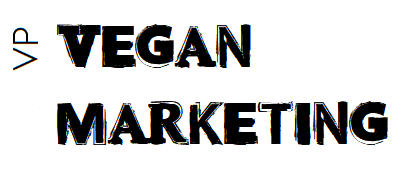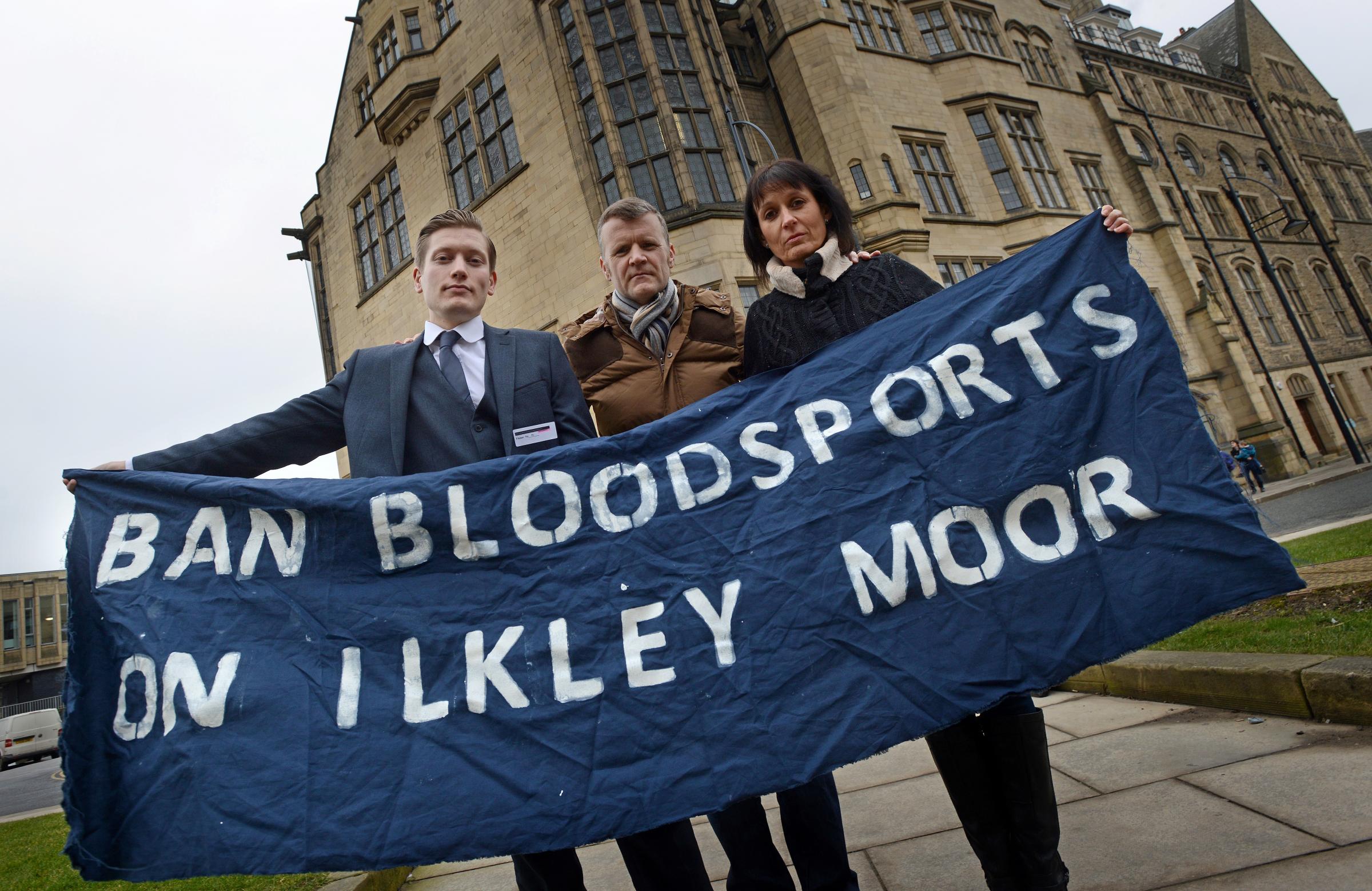Jane and Phoebe Frampton are animal rights activists who started the protest group London Vegan Actions and whose effective activism featured in the BBC Three documentary Fighting the System.
Could you tell us when and why you became vegan, and when and why you decided to take things further and engage in protests and other animal rights activism?
Jane: Becoming vegan 3 years ago was down to a number of factors. Firstly, I came across meditation whilst at drama school, understanding that we are all connected and equally want to be happy and not suffer, and watching a documentary by Paul McCartney called ‘Glass Walls‘, and then educating myself further. Activism naturally followed. We didn’t set out to become activists. Being woken up meant to us that we needed to really act upon what is now the biggest social justice issue.
Phoebe: Before I became vegan, I became vegetarian and that happened because I saw a video of animals being killed. I had never seen anything like it, it was horrific and I just had never made the connection between the animals and the food on my plate before I saw that. I then went vegan because I happened to see the word online somewhere and wanted to know more, and I ended up doing lots of research online and watching more videos. I found out how cruel the egg and dairy industries were, and not only that but how horrible the fashion industry could be to animals. I had never thought about leather, wool and silk before.
Activism came pretty soon after I went vegan because I felt like I wasn’t doing enough to help the animals just by being vegan and I wanted to change the world! I searched online for animal rights protests and attended my first one, loved it and then continued from there.
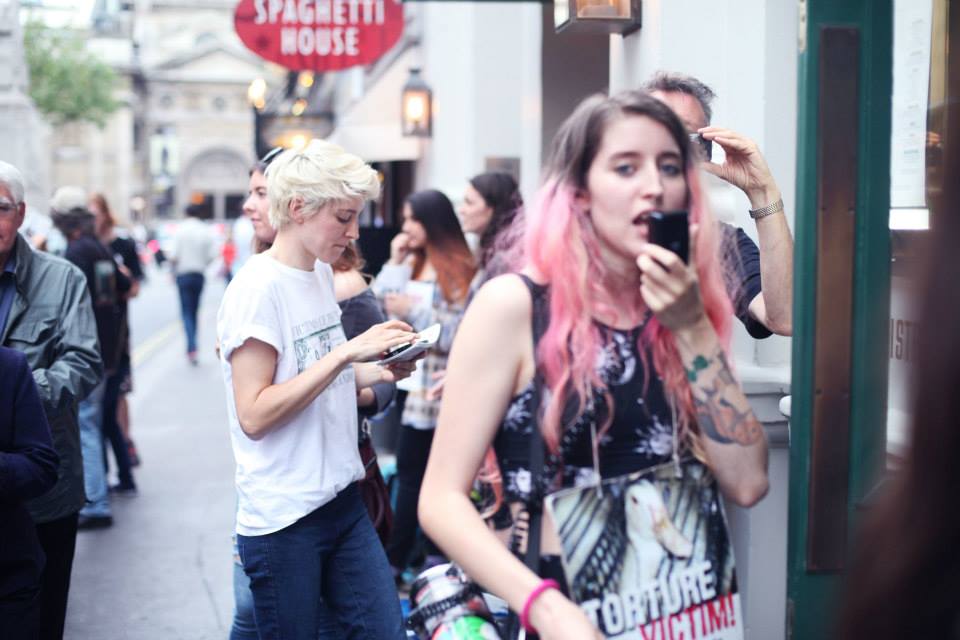
You both made an inspirational appearance in the recent BBC documentary Fighting The System. How did that come about, and what was it like to have a film crew following you around? Have your lives changed since the documentary was broadcast?
Jane: We were recommended by a few people who knew of our work and had seen an advert BBC had put out for it. When they followed us around, we just carried on with how we usually do things but we felt like we were also carrying a big responsibility as it is so rare that animal rights will get on mainstream TV let alone shown in the right way. We were really pleased with how much was shown, and truthfully too. Since the show, we have had many people get in touch to say how they have gone vegan through watching the show and/or how they are inspired to get active, and we have a lot more people turn up to our events to get active now.
Phoebe: Thank you! It sounded like a great opportunity to get the message of veganism and animal rights out there to loads of people, an opportunity not to be missed. It felt really strange to have a film crew following us at protests at first but when you are protesting you are so caught up in what you are doing that eventually you forget they are there filming you.
It’s funny because even though it’s a few months down the line now, I still often get recognized in the street by strangers. Some people say they have seen me somewhere or think they know me but can’t remember where from, and it always comes back to the documentary. One lady stopped her car in the middle of traffic and ran over to tell me she watched the show and how great we were, that felt really bizarre but I was also really touched. I was even approached by a guy on the train called Lenny who saw the show and now he is a member of our group, London Vegan Actions. I am so thankful for the opportunity we had and glad we took advantage of it to create awareness and inspire others to get active too!
You’ve had a great deal of success recently in getting restaurants to stop selling foie gras. Could you tell us about your recent actions, and why they have been successful?
Jane: Our campaigns are successful because we not only focus on what are achievable victories for animals right now, but we make our events as creative as possible and work with what the public are currently mostly outraged by. For example, we got the sale of angora stopped in a string of high street stores last year in London by demonstrating outside one of their biggest stores on the busiest high street with megaphones, laptops showing actual undercover footage of what’s happening to the animals, chalk, big posters and collecting petition signatures. Collectively all of this draws huge crowds; it creates maximum disturbance, awareness and soon enough change. That is energy well spent and inspired us to carry on.
With foie gras, we are doing exactly the same. We know that the production of it is already banned here but importation and sale of it aren’t. So we are tackling the restaurants, again with the public on our side, until it will no longer be sold here.
Phoebe: I think they have been successful mainly because we think tactically about these things, like Jane said what is most achievable, it’s the way that we approach activism, we are always thinking what will work and what we can do differently to make our activism more effective. We are constantly reflecting and trying to improve and a lot of thought and hard work goes in to our campaigns. We are very dedicated.
Every Sunday you hold a vegan outreach event. What themes have you covered, and how have people reacted to you and the information you’ve given them?
Jane: Vegan outreach is something that is carried out within our London Vegan Actions group every weekend and it covers everything vegan. You only have to ask someone why they went vegan to know all of the different ways that people might go vegan so there is no one way which works, it totally depends on the individual and when they are ready; but it is our role as messengers of the truth to show it and hope that you can awaken something within them.
We also started outreach on the tube which is where we show Earthlings on laptops which cuts out the leaflet middleman that tells you to go and watch it, and it’s drawing on the idea of a shared experience where people come together. We wear ‘neutral’ masks to attract attention to us and what we are showing but also to remain anonymous and to not speak to the viewer, which instead encourages them to investigate themselves based on their own reactions, but we do hand out a small love heartshaped memo which tells them where they can find out more information.
The reactions we have had have been hugely powerful. Not only do you get to sit with the people and see them react exactly how you want them to and how you did, but they are so moved, we’ve had a lot of tears and thanks and the kind of reaction where you know a seed has definitely been planted.
Phoebe: In the past we have covered different themes such as Christmas, Mother’s Day and Sea Life. Everyone responds differently but often it’s a very positive reaction and people find the information quite shocking as we are not often told of the suffering that animals endure for our greed. I would have been both shocked and grateful if someone had pointed it out to me like that.

How might people become involved in London Vegan Actions’ outreach and protests?
Jane: Our website has many ways of staying in touch with us. We always put our events onto Facebook and Twitter beforehand and can also notify by text message. So just turn up!
Phoebe: Yep! Anyone is welcome to join our protests, outreach and other actions. We love meeting new activists and everyone starts somewhere so I say just do it, show up to a protest, you won’t regret it! There is an activist in all of us.
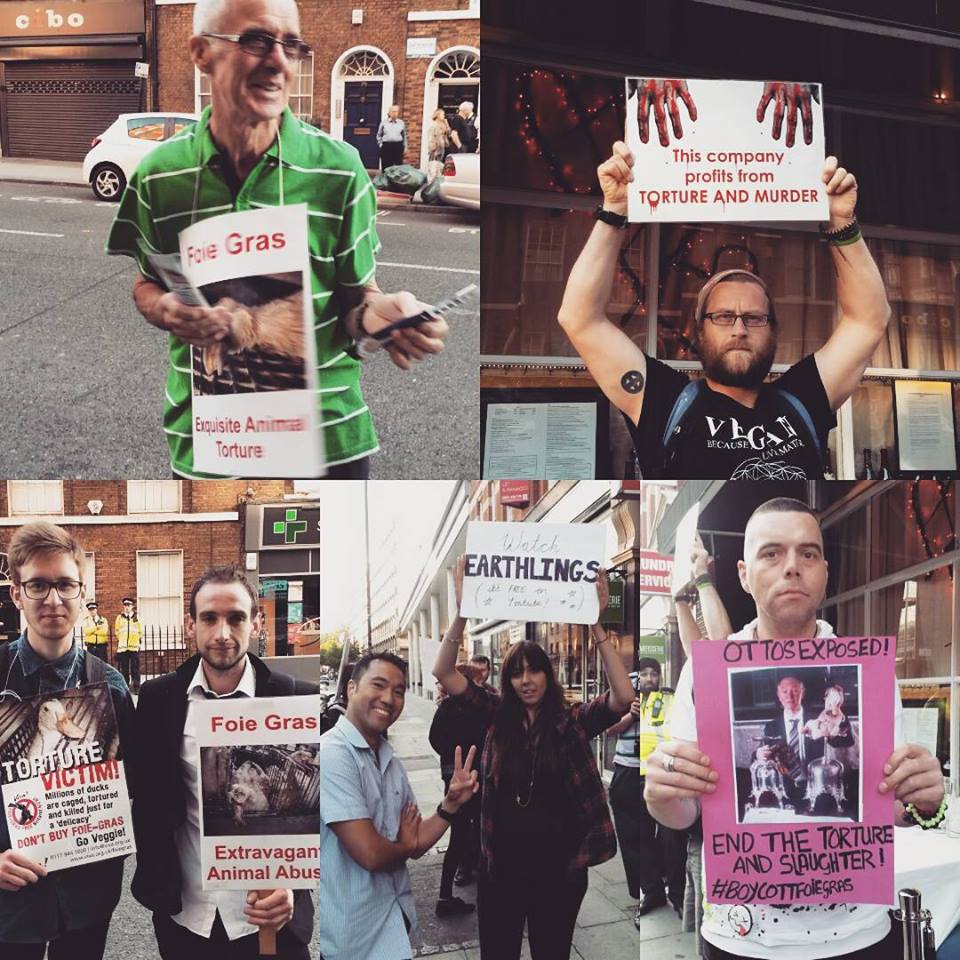
The scale of animal abuse in the world is depressing and the struggle faced by animal rights activists can be overwhelming. How do you remain positive in the face of such huge challenges?
Jane: Yes it is, there’s not a day that goes by where I don’t feel affected or helpless by it but that’s nothing compared to what the animals are going through. It’s important to be there for yourself so that you can be there for others. I meditate on a daily basis so that my output is the most effective, and I try to stay open and practice compassion rather than close down. It’s also good to stay positive, remembering that there are so many people out there feeling like you do but doing this, it’s not just you. When you are on the right side of change, you see it happening around you every day and to know that you are a part of that is a great reminder of why you are doing it.
Phoebe: Yes, it can be very overwhelming, especially after you have just watched a video of animal cruelty and you desperately want to save that animal. But we do what we can, we cannot change everything right now but we can do something, I remind myself of all the positive change we have created and are still creating. I also remind myself of struggles in the past that have been overcome with activism and education, it is so important not to give up hope!!! We are all the animals have. We must not give up on them.
Are there any individuals in the animal liberation movement who you find a particular inspiration?
Jane: My sister obviously. She’s the ultimate support, being that we feel and act on things exactly the same and put this at the forefront of everything. Together we can do so much.
And I’m also inspired by anyone who uses their own initiative and motivation as an individual to stay active whether you are in a group or not, who remains focused and flexible in changing tactics to bring about successful changes for animals more than any ideas which aren’t working, and who works with keeping love and compassion for all beings as their basis.
Phoebe: Individuals who have sacrificed their own freedom and life for animals are an inspiration to us all, their selflessness, fearlessness and dedication to free animals is purely from the heart, sadly they are oppressed and punished for such actions and many are behind bars for a long time, others have died. I also really find people who run farm sanctuaries for the animals a huge inspiration, they are all around the world. There is a sanctuary that we often visit to help out at called F.R.I.E.N.D Farmed Animal Rescue and is run by two great people, Mark and Marion, who spend all day and every day taking care of these animals, they dedicate their life to helping animals and it is very challenging, I have seen how hard it is for them but they would never even think about giving up.
And of course, activists around the world who do not have the same privileges that some of us have here in the UK, the freedom to speak out and freedom to demonstrate peacefully, often they know they will be arrested or have a violent reaction from members of the public yet they continue to do it anyway. They are awesome! I love them.
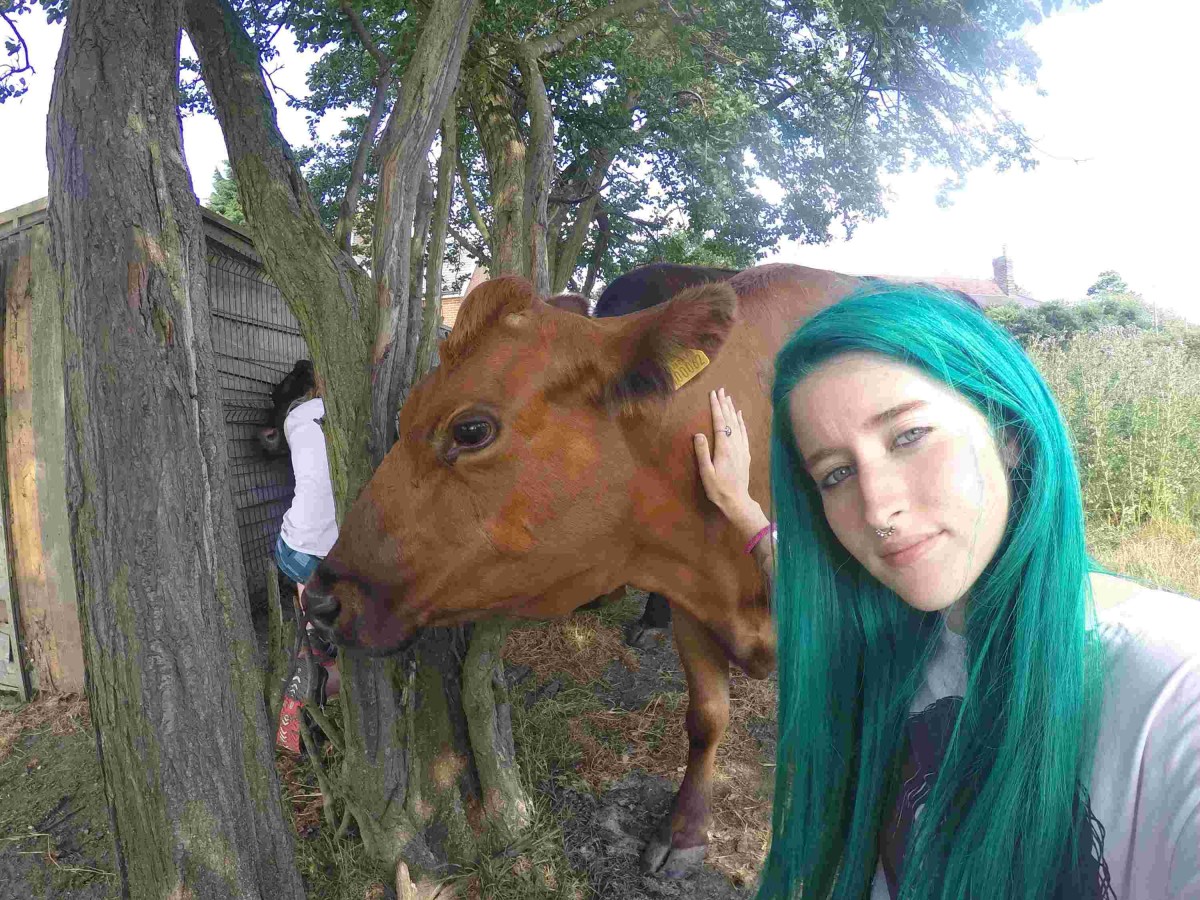
Any final words to those who have not yet gone vegan, and to those who have adopted a vegan lifestyle but not yet taken part in activism?
Jane: Veganism takes care of you, others and our planet. It’s important to question everything and to stay close to your reasons for wanting to do it and there are many documentaries and books out there that are more than helpful. We would also be glad to help. You can still carry on eating and wearing what you like as there is a vegan alternative for everything.
Being vegan means that you are no longer a part of the problem but it also means that you are not part of the solution either unless you are getting active about it. If you have woken up to the truth, then you have been chosen to join the movement in waking everyone else up. The ways in which we can be active are limitless and all of value, there is nothing that we don’t already possess within us to live how we were meant to and to help others do the same.
Phoebe: To those who are reading this and are not yet vegan, please watch videos of what happens to the animals. You owe it to them to at least acknowledge their suffering and pain. I am sure if anyone has a heart and compassion, then after seeing these things you will want to change, you will want to help them too. Veganism is a solution to many problems in the world, so do some research and find out for yourself. We can all make a difference, as consumers we make choices that effect these industries every day, usually several times a day, we have the power to change things, but are we willing to put others before our own greed and pleasure?
Going vegan is not difficult once you know what happens to the animals, you just have to remind yourself often of why you are making these changes. And as for activism, we need to be telling others of what happens all the time because they do not know and no one else is going to tell them, things will not change by themselves. We need to be telling companies that make a profit out of misery and torture that we will no longer tolerate this, and we won’t stand in silence whilst they exploit our non-human brothers and sisters. We need to send a clear message to them all, to the world, that this is unnecessary and there is another way, there is a more kind and compassionate way to live.
Facebook: facebook.com/londonveganactions
Twitter: twitter.com/LdnVeganActions
Youtube: youtube.com/veganactivistsisters
